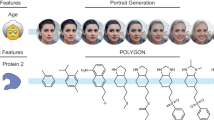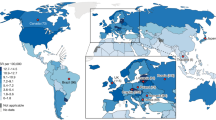Abstract
Comparison of human genome sequences from different individuals has unraveled that genes involved in the drug efficacy and metabolism are polymorphic, harboring mutations, splicing variations and other alterations. These data provide a reasonable explanation for the inter-individual variations observed in drug therapy. Thus, a detailed molecular analysis and an in-depth knowledge of these genes is a prerequisite to practice pharmacogenomics-based medicine. We have introduced a 6-week laboratory research rotation to train students in the expression analysis of different pharmacogenes combined with bioinformatics tools. Students were first introduced to the bioinformatics tools to identify appropriate DNA primers to amplify specific pharmacogenes from the laboratory cancer cell lines. The amplified DNA fragments were sequenced. Finally, students were trained in bioinformatics tools to establish the identity of these DNA sequences. The possible implications of this laboratory training in developing problem-solving skills needed in the implementation of pharmacogenomics knowledge in the clinic, are discussed.
This is a preview of subscription content, access via your institution
Access options
Subscribe to this journal
Receive 6 print issues and online access
$259.00 per year
only $43.17 per issue
Buy this article
- Purchase on Springer Link
- Instant access to full article PDF
Prices may be subject to local taxes which are calculated during checkout



Similar content being viewed by others
References
Whirl-Carrillo M, McDonagh EM, Hebert JM, Gong L, Sangkuhl K, Thorn CF, et al. Pharmacogenomics knowledge for personalized medicine. Clin Pharmacol Ther. 2012;92:414–7.
Dias MM, Sorich MJ, Rowland A, Wiese MD, McKinnon RA. The routine clinical use of pharmacogenetic tests: what it will require? Pharm Res. 2017;34:1544–50.
Feero WG, Green ED. Genomics education for health care professionals in the 21st century. JAMA. 2011;306:989–90.
Ginsburg G. Medical genomics: gather and use genetic data in health care. Nature. 2014;508:451–3.
Harvey EK, Fogel CE, Peyrot M, Christensen KD, Terry SF, McInerney JD. Providers’ knowledge of genetics: A survey of 5915 individuals and families with genetic conditions. Genet Med. 2007;9:259–67.
Murphy JE, Green JS, Adams LA, Squire RB, Kuo GM, McKay A. Pharmacogenomics in the curricula of colleges and schools of pharmacy in the United States. Am J Pharm Educ. 2010;74:7.
Rao US, Mayhew SL, Rao PS. Strategies for implementation of an effective pharmacogenomics program in pharmacy education. Pharmacogenomics. 2015;16:905–11.
Rao PS, Govindarajan R, Mallya KB, West W, Rao US. Characterization of a new antibody raised against the NH2 terminus of P-glycoprotein. Clin Cancer Res. 2005;11:5833–9.
Satelli A, Rao PS, Thirumala S, Rao US. Galectin-4 functions as a tumor suppressor of human colorectal cancer. Int J Cancer. 2011;129:799–809.
Finta C, Zaphiropoulos PG. The human cytochrome P450 3A locus. Gene evolution by capture of downstream exons. Gene. 2000;260:13–23.
Zanger UM, Schwab M. Cytochrome P450 enzymes in drug metabolism: regulation of gene expression, enzyme activities, and impact of genetic variation. Pharmacol Ther. 2013;138:103–41.
Nelson DR. A world of cytochrome P450s. Philos Trans R Soc Lond B Biol Sci. 2013;368:20120430.
Lundqvist E, Johansson I, Ingelman-Sundberg M. Genetic mechanisms for duplication and multiduplication of the human CYP2D6 gene and methods for detection of duplicated CYP2D6 genes. Gene. 1999;226:327–38.
Gellner K, Eiselt R, Hustert E, Arnold H, Koch I, Haberl M, et al. Genomic organization of the human CYP3A locus: identification of a new, inducible CYP3A gene. Pharmacogenetics. 2001;11:111–21.
Chen X, Wang H, Zhou G, Zhang X, Dong X, Zhi L, et al. Molecular population genetics of human CYP3A locus: signatures of positive selection and implications for evolutionary environmental medicine. Environ Health Perspect. 2009;117:1541–8.
Johnson JA, Moore MJ, Shin J, Frye RF. A summer research training program to foster PharmD students’ interest in research. Am J Pharm Educ. 2008;72:23.
Knoell DL, Johnston JS, Bao S, Kelley KA. A genotyping exercise for pharmacogenetics in pharmacy practice. Am J Pharm Educ. 2009;73:43.
Krynetskiy E, Lee Calligaro I. Introducing pharmacy students to pharmacogenomic analysis. Am J Pharm Educ. 2009;73:71.
MacKichan JJ, Shields BJ. A one-month drug analysis laboratory rotation for doctor of pharmacy students. J Clin Pharmacol. 1993;33:790–8.
Rao PS, Labhart M, Mayhew SL, Thirumala S, Rao US. Heterogeneity in the expression of receptors in the human breast cancer metastasized to the brain. Tumour Biol. 2014;35:7267–73.
Rao US, Hoerster NS, Thirumala S, Rao PS. The influence of metastatic site on the expression of CEA and cellular localization of beta-catenin in colorectal cancer. J Gastroenterol Hepatol. 2013;28:505–12.
Acknowledgements
The authors wish to thank the College administration for the financial support.
Author information
Authors and Affiliations
Corresponding author
Ethics declarations
Conflict of interest
The authors declare that they have no conflict of interest.
Electronic supplementary material
Rights and permissions
About this article
Cite this article
Rao, P.S., Endicott, R., Mullins, R. et al. A 6-week laboratory research rotation in pharmacogenomics: a model for preparing pharmacy students to practice precision medicine. Pharmacogenomics J 18, 601–608 (2018). https://doi.org/10.1038/s41397-018-0019-3
Received:
Revised:
Accepted:
Published:
Issue Date:
DOI: https://doi.org/10.1038/s41397-018-0019-3
This article is cited by
-
Statins decrease the expression of c-Myc protein in cancer cell lines
Molecular and Cellular Biochemistry (2021)
-
Quantitative proteomics analysis of differentially expressed proteins induced by astragaloside IV in cervical cancer cell invasion
Cellular & Molecular Biology Letters (2020)



